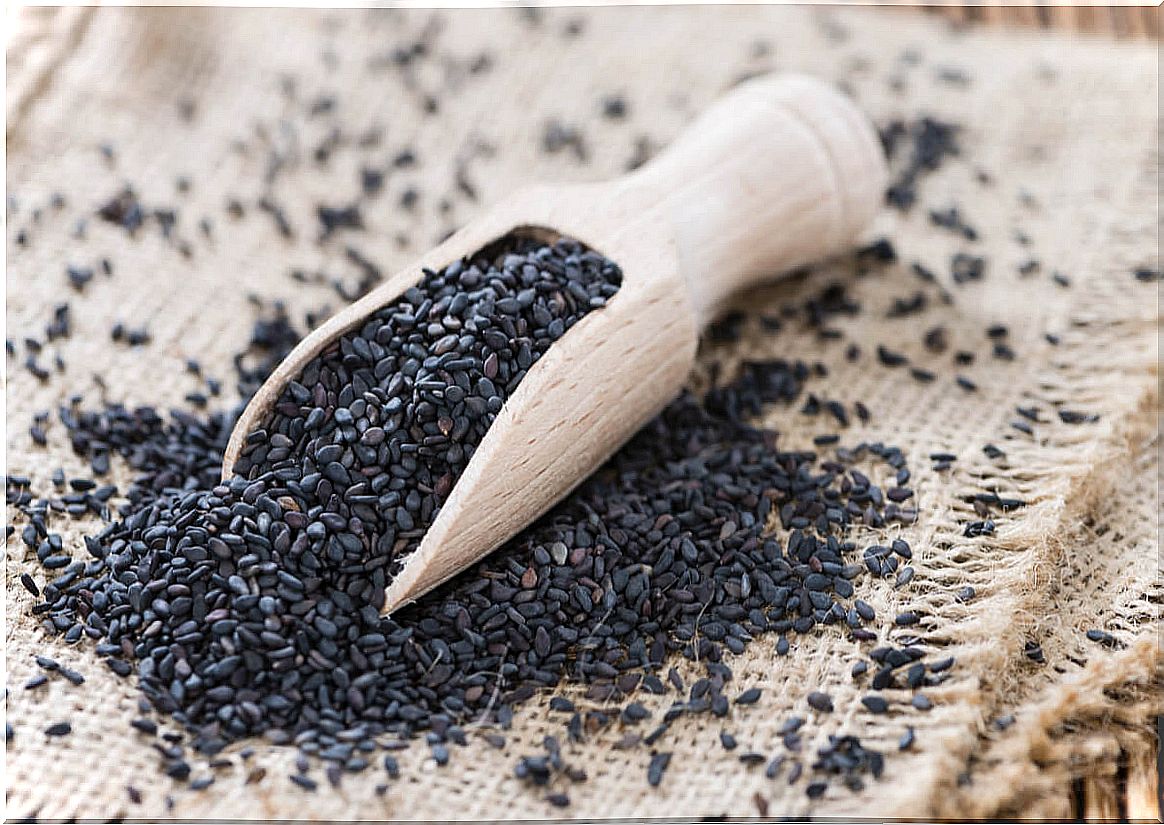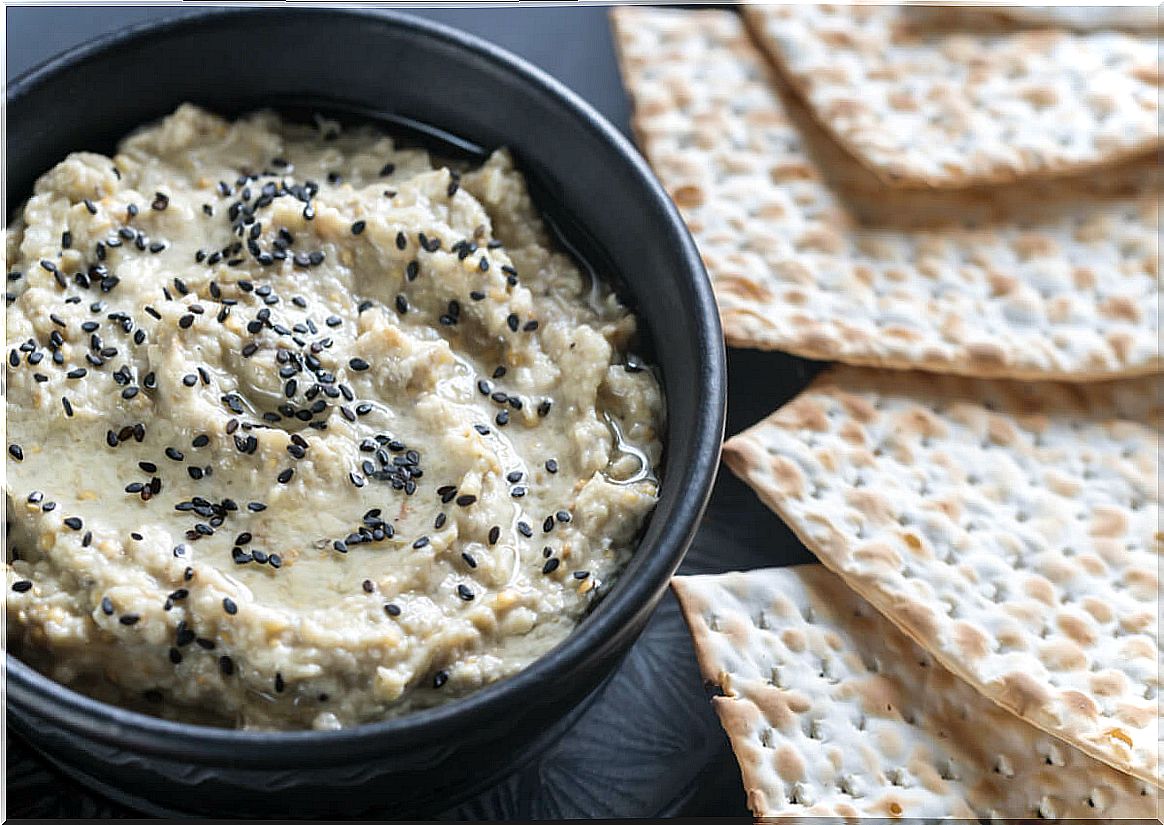5 Benefits Of Black Sesame Seeds
The benefits of black sesame seeds have long been valued in some cultures such as Japanese or Chinese. Black sesame and rice soup, mochis , gum dango, pudding or ice cream. All these curious dishes make us think of their great presence in Asian kitchens. Not in vain there is one of its main spices.
These seeds are the tiny grains of the Sesamum indicum plant , which has been cultivated for years. Originally from Asia (where they are produced almost entirely), today they are known and consumed in many parts of the world.
Benefits of black sesame seeds
Behind their small size they actually hide a large amount of nutrients. It is safe to speak of a true superfood. In this case, the following contributions should be highlighted, since thanks to them we have their 5 positive effects for health:
- Polyunsaturated and monounsaturated fatty acids.
- Fiber.
- Proteins.
- Minerals, among which iron, magnesium, calcium, zinc and copper stand out.
- Tocopherols.
- Lignans

1. Protection of cardiovascular health
Lignans play an important role in reducing risk factors for diseases of the heart and circulatory system. There are studies that link the intake of these components (also present in black sesame) with less chances of suffering from cardiovascular problems, both in postmenopausal women and in older men.
2. Black sesame as an antioxidant
Free radicals are produced in the body on a daily basis. If they are kept in balance with the action of antioxidants, they do not usually cause health difficulties. However, sometimes this balance gets out of control and problems such as chronic inflammation, neurodegeneration or atherogenesis can appear.
A diet rich in antioxidants is important to supplement those that the body generates. In this case, sesame seeds are interesting for the presence of tocopherols, sesamin and sesamolin (two types of lignans). All have shown great efficiency in this activity.
3. Anti-inflammatory effect
Inflammation is a defense mechanism of the body to act against pathogens and restore damaged tissues. This usually causes redness, pain, and swelling. If it is very severe or lasts for a long time, it can trigger other pathologies, chronic diseases or organ failure.
Sesame lignans have an anti-inflammatory effect. As proven in a research review, it helps improve diseases such as osteoarthritis, neurodegenerative disorders, and inflammatory bowel pathologies.
4. Possible protector of cancer
In the same review of studies published in the journal Molecules that we cited previously, positive effects of sesame were recognized against oncological diseases. Inflammation may be one of the inducing factors, since when it occurs, molecules are produced that damage cellular DNA.
Following the approach of this same article to which we refer, it has been observed that lignans are capable of inhibiting the growth of cancer cells. These effects have been demonstrated in the lung, pancreas, colon, breast, prostate, neck, and colon.
5. Black sesame and high blood pressure
High blood pressure is one of the main risk factors for cardiovascular complications. And this is one of the leading causes of death in industrial countries. These consequences include stroke, myocardial infarction, and kidney failure.
In a study published in the British Medical Journal , the influence of black sesame intake on the problem was tested. The results, after 4 weeks, showed that there is an antihypertensive effect, which may imply an improvement in the prevention of cardiovascular diseases.
Are there differences between sesame and black sesame?
At first glance, the only thing that distinguishes the two varieties is their color. But there are other aspects that are hidden behind. Especially since the black seeds keep the shell intact, which does not happen in the lighter ones. Being unpeeled grains, they are crunchier and have a more pronounced flavor.
In addition, it is considered that this fact can also lead to a nutritional difference between the two types. Black sesame seeds are richer in minerals like calcium, iron, copper, or manganese. This is also the case for lignans.
How to incorporate the benefits of black sesame into your diet

In order to enjoy the benefits of black sesame seeds, it is necessary to add them daily to the diet. Its positive effects are noticed regularly and not by consuming large amounts from time to time.
It is recommended to eat them crushed or in the form of a puree. Otherwise, if they are not chewed very well, they are almost entirely eliminated with the feces. They can be bought already ground or made at home with a coffee grinder or food processor. Although they are a food that does not oxidize easily, it is better to protect them from light and high temperatures.
Some of the dishes in which they can be added once ground are the following:
- Soups, salads or vegetables. Sprinkle at the last minute.
- To enrich muesli or breakfast cereals.
- It can also be used in the form of pasta or tahini . This is spread on slices of bread, fruit slices or to make sauces. Salads or stews are seasoned with them.
- Sesame is also good for cooking. They are a perfect decoration for homemade rolls or they can substitute flour in chicken or fish batters.
Generally, black sesame seeds are a safe food, but watch out for a possible allergic reaction. For this reason it is necessary to monitor the adverse effects if they are ingested for the first time and to do it in small quantities.
The valuable benefits of black sesame seeds
Sesame seeds grow in a wide variety of colors ranging from white to black, to gold, beige, and brown. This small grain has been used by many cultures for hundreds of years. It is valued not only for its culinary qualities, but also for its medicinal properties.
Among all of them it is worth highlighting its antioxidant, anti-inflammatory and protective capacity for cardiovascular health. The best way to take advantage of them is to introduce them into the daily diet, both in the decoration of salads, soups or mueslis, as well as in the recipes of breads and cookies.








